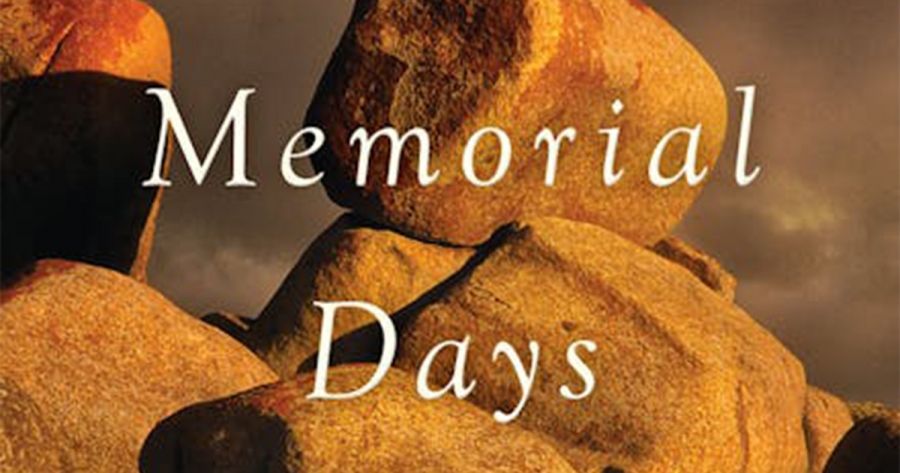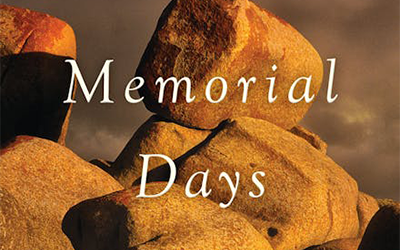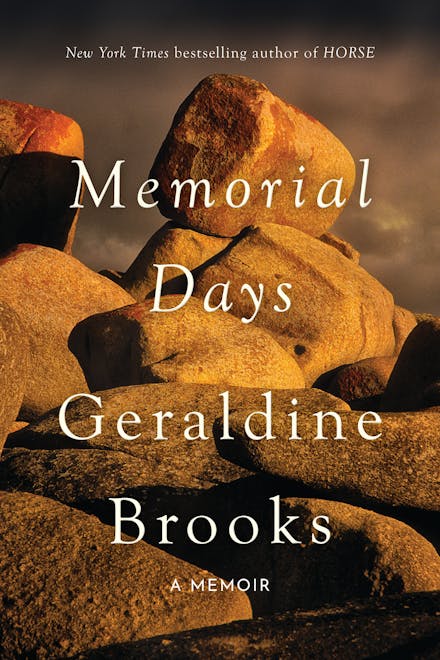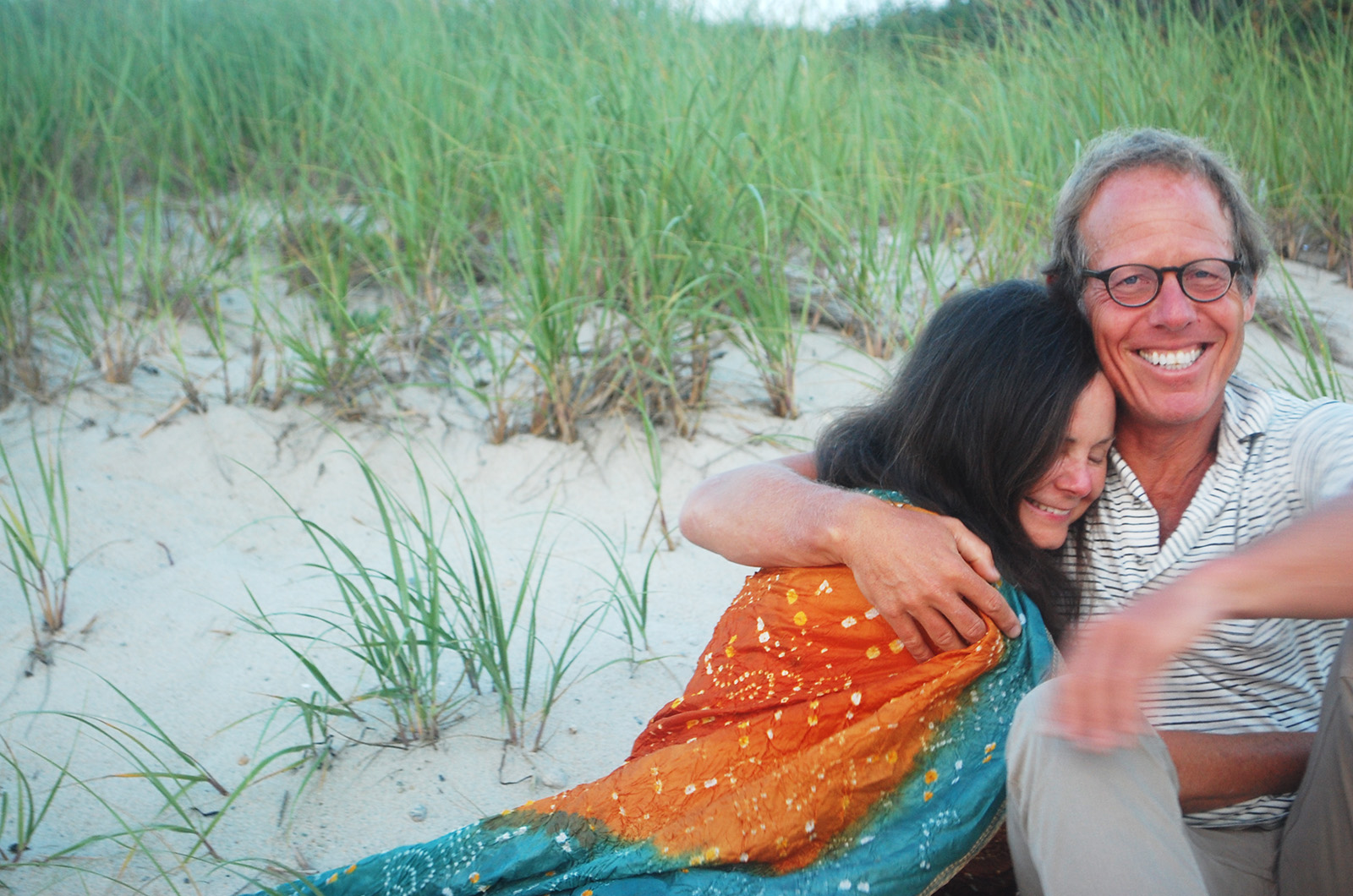
- Free Article: No
- Contents Category: Memoir
- Review Article: Yes
- Article Title: A rupture in time
- Article Subtitle: Loss memoir as empathy
- Online Only: No
- Custom Highlight Text:
Tony Horwitz, fêted American journalist-historian, died in 2019 – on the last Monday in May, a day when America ritually honours its war dead and heralds the beginning of summer. Horwitz was sixty. For his wife, Australian journalist and novelist Geraldine Brooks, his death was more than an ironic anomaly: it was an inconceivable rupture in time:
- Featured Image (400px * 250px):

- Alt Tag (Featured Image): Morag Fraser reviews ‘Memorial Days by Geraldine Brooks’
- Book 1 Title: Memorial Days
- Book 1 Biblio: Hachette, $32.99 hb, 212 pp
- Book 1 Cover Small (400 x 600):

- Book 1 Cover (800 x 1200):

- Book 1 Readings Link: https://www.readings.com.au/product/9780733651076/memorial-days--geraldine-brooks--2024--9780733651076#rac:jokjjzr6ly9m
Not Tony. Not him. Not my husband out on the road energetically promoting his new book. My husband with the toned body of a six-day-a-week gym rat … My husband, younger than I am – hilarious, bursting with vitality. He’s way too busy living. He cannot possibly be dead.
The title of Brooks’s memoir, Memorial Days, serves multiple ends. It marks that stark Monday, the shock of it amplified by the dehumanising way she is informed of her husband’s death: a brusque phone call from a tired doctor who tells her that the DC police will need to contact her so she should stay within reach. Brooks is alone, at home in West Tisbury on Martha’s Vineyard, an island almost hundreds of kilometres from Washington. Some thing in Brooks’s sense of the human fitness of things rebels: in books or films ‘no one gets this news alone’. Someone makes sure you are sitting down, offers you water, asks whom you would like them to call. But no one had done her this kindness. This is ‘the first brutality in what I would learn is a brutal, broken system’.
That shift – from intense and immediate personal hurt to a journalist’s analytical habit, and an empathy with fellow humans who also suffer – is what distinguishes this memoir of loss from many of its famous American antecedents. (Tony Horwitz’s own terse judgement, as a judge of the National Book Award the year Joan Didion won it for The Year of Magical Thinking, was scribbled on his judge’s galley proof: Name & product dropping. Padded.)
Memorial Days vividly conveys emotional devastation at the sudden loss of an intense, loving, and treasured companionship. Brooks and Horwitz’s marriage was so evidently one of two true minds – complex, freighted with joy, conflict, expatriation, compromise, and laughter – a scintillating, bi-national twenty-first-century love story. But Brooks sets her experiences – of passion, work, family, loss – in a context, as though by reflex. She writes of herself as entangled in history, cultural norms, and rituals of belief and commemoration (and the loss of them). On Memorial Day, as America commemorated its dead, including Civil War Union and Confederate soldiers, black and white, no American hospital official could spare time to provide comfort or even proper information to the widow of a cultural standard bearer found dead, but easily identifiable, in a Washington street. How could this have been allowed to happen, and not just to her? What could have led to such a systemic failure of compassion?'
 Geraldine Brooks and Tony Horwitz (via Vineyard Gazette)
Geraldine Brooks and Tony Horwitz (via Vineyard Gazette)
Brooks is an adept of layered narrative. Memorial Days moves nimbly between chapters that chronicle the Brooks-Horwitz marriage, work, family life, and death, and Brooks’s solitary time in 2023, spent on Tasmania’s remote Flinders Island, where she went, finally, to grieve, to ‘begin my own memorial days’.
In the intervening years, she had to deal with a grinding US ‘bureaucracy of death’, including the cancellation of credit cards and of the family’s health care. Arduous and exhausting. But Brooks is alert to her position of privilege. Her older son Nathaniel had interned for a Massachusetts senator, Ed Markey, a champion of the Affordable Care Act. So, an email, then a phone call, and presto! – health cover restored. But, she writes, ‘What about all the people who didn’t have a senator’s office on speed dial?’ What indeed.
The investigative journalist takes over here (never far from Brooks’s work, including her research-integrated fiction). ‘It’s hard to explain,’ she writes, ‘the injustice of the United States health care system to Australians, whose taxpayer-funded Medicare covers everyone, a principle accepted by left and right alike. Australians gasp to learn how Americans are driven to bankruptcy by illness, and that lifesaving medications might cost the uninsured tens of thousands of dollars a year.’ Long may we gasp, and may we never grow complacent or smug.
In that same limbo-time (incorporating Covid-19 shutdowns), and after a bleak period of not being able to write at all, Brooks finished her novel, Horse (2022). It was a work that Horwitz had encouraged, and a history – of the American South, of slavery, the Civil War, and of racism past and present – that had occupied much of his own writing life, notably his last book, Spying on the South (2019). Brooks’s novel (it is an instructive, if poignant, pleasure to read novel and memoir alongside one another) is darkened in its later part by Horwitz’s death, as though he has a transmuted presence in it.
Horse is also a layered work, running multiple narratives across three time periods. Memorial Days is ostensibly simpler, swivelling only between the writers’ life together (in the Wall Street Journal’s newsroom they were often referred to jointly, as ‘HoBro’), and the time Brooks spends on Flinders Island, ‘taking something that our culture has stopped freely giving: the right to grieve’.
Even in grief, too long tamped down by busyness, Brooks looks outward, not entirely inward. Her mother, she recounts, was ‘a great foe of wallowing. Get over yourself. Think about other people for a change …’ The daughter’s way is not so resolutely ‘Carry on’. When the ‘endless performance’ required in the wake of her husband’s death and commemoration rituals, together with family concerns and publishing obligations, is over, she makes time and space for grief. She quotes a man who sees a positive in it: ‘“Grief is praise,” writes Martín Prechtel in his book The Smell of Rain on Dust, “because it is the natural way love honors what it misses.”’
‘Ostensibly simpler’, I wrote above. Memorial Days is modest in length but a brimming treasure house of observation, of the natural world and the unaccountable human one. The Flinders Island chapters alternate precise geological observation with Australian improvisational eccentricity: ‘Porphyritic granite. Coarse gravels. Silica-rich soils’, on an island where Brooks’s rented shack has ‘a loo with a water view and a worn-out snorkel serving as the toilet roll holder’.
When Brooks is not laughing ruefully at herself, she conjures her husband doing it for her:
I see myself as he would see me, disheveled and alone, washed up on a beach at the ends of earth, observing memorial days of no fixed duration. I can see him grinning and amused. ‘What do you think you’re doing, you mad woman? For god’s sake, go to the pub!’
There is a leavening freshness, a vernacular ease to Brooks’s writing, that consorts gently with the gravity and darkness of what she explores. She is at home exploring Hebrew scripture and rituals as she is writing about Flinders Island’s wallabies, pademelons, and wombats. When she confronts the causes leading up to her husband’s death, she does it with stalwart honesty. When she lists practical ways of managing grief in life (locate the plumber’s number and file the children’s vaccinations records) she becomes a valued and useful friend. And when she writes that ‘my time alone in nature restored me, as nature always does’, you believe her.
Memorial Days is a wonderful, rich, wise book.


Comments powered by CComment